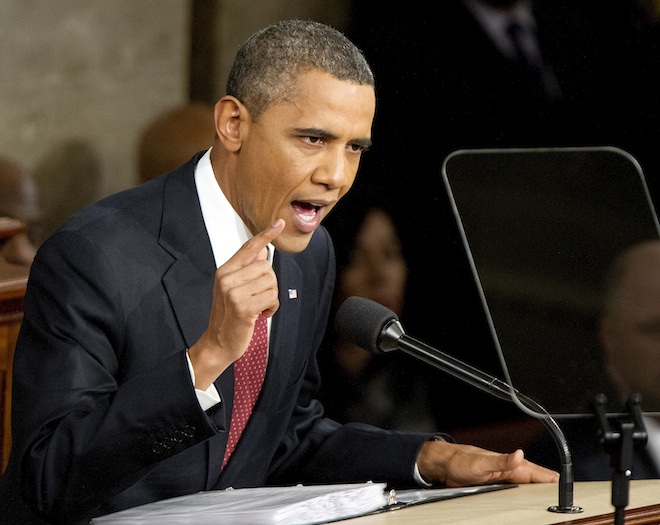A new Obama administration framework for reforming the business income tax code is touching off a brand new election-year policy debate in Washington. But this time around there’s a great deal of consensus between the parties over the ideal nature of reform. And that means there will be two main obstacles to success. The first issue will be political concerns — should Republicans hand President Obama a substantive victory with control of the White House on the line? The second will be the parochial concerns of powerful interest who stand to lose tremendous subsidies as a result of the reforms.
In a briefing with reporters Wednesday, Treasury Secretary Timothy Geithner laid out the five principles underlying the proposed reforms. Any corporate tax reform should eliminate scores of loopholes and subsidies and use the savings to lower rates — specifically from a current top rate of 35 percent down to 25 percent.
The new system should likewise prioritize U.S. manufacturing, according to the administration, by creating permanent incentives that allow American manufacturers to pay an effective rate of no more than 25 percent.
The White House is also proposing a new minimum tax on foreign earnings, to encourage domestic investment, and limit the extent to which companies can defer taxation by delaying repatriation of foreign income.
Officials say the reformed code should make filing simpler for small business owners; and that the overall reforms should be deficit neutral or better.
The framework is designed to be implemented separately from broader reform of the individual tax code.
But with the looming expiry of the Bush tax cuts, and deep automatic spending cuts scheduled to kick in on January 1, 2013, the new push could become tied to a broader fight over the country’s safety net, and whether wealthy earners should contribute more than they do to sustain key federal programs.
“This process is going to take some time,” Geithner said. “It’s going to be politically contentious.”
The political implications of the push will be complicated. Obama is effectively proposing to lower the tax burden on most businesses but to pay for it by ending entrenched benefits for particularly powerful interests. That’s an approach Republicans have claimed to support (though they’d like to lower rates further, and diminish the amount of revenue the government takes from businesses). But they’ll be hard pressed to support an Obama initiative in an election year. And if the fight plays out a certain way, Republicans may have to choose between their reputations as tax cutters and their overarching desire to end Obama’s presidency.
Administration officials are hopeful that Obama’s growing popularity and a steady economic recovery will force Republicans to work with him on this and other historically bipartisan issues. But if Republicans balk, the whole issue will likely be pushed off until after the November election.
On the flip side, Obama risks undercutting his own populist tactics by championing reforms that will be widely characterized as a corporate tax cut. Between Republican political concerns, and Obama’s demand that the reforms not amount to a net tax cut for businesses, getting something passed in the current legislative environment will be a heavy lift.










